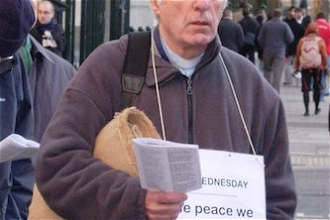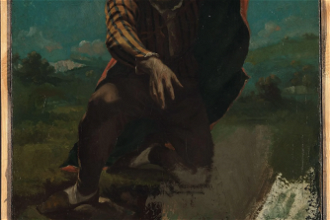Pope's visit to Ukraine ends with 28 beatifications
More than a million people greeted the Pope yesterday, when he arrived in Lvov to celebrate Mass and beatify 28 Ukrainians. Their martyrdom under Soviet rule, he said, was "a pressing call for reconciliation" with the Orthodox church. The Mass marked a high point in the Pope's five-day visit to Ukraine in which he repeatedly called for forgiveness and reconciliation and sought to end the centuries-old schism with the Orthodox Church. In the areas where there were a large number of Catholics - only able to practice their faith legally for the past ten years - he received an ecstatic welcome. In the Orthodox areas his reception was much more muted. Winding up his journey near the Polish borders the Pope seemed acutely conscious of the painful history of the region, and its many religious and ethnic divides. All but one of those beatified, he said, were Ukrainian martyrs who died in a land covered with "mountains of corpses and rivers of blood." Appealing to all believers move beyond past grievances, he said in Ukrainian: "Together with them, Christians of other confessions were also persecuted and killed on account of Christ. Their joint martyrdom is a pressing call for reconciliation and unity." Cardinal Lubomyr Husar, leader of the Ukrainian Catholic Church, which follows Byzantine rites but is loyal to Rome, also asked forgiveness for those Greek Catholics who in the last century "consciously and voluntarily did evil things, both to their own people and to others." His sweeping apology included one of the most painful episodes of Ukrainian history: collaboration with the Nazis. He explained that a "spirit of mutual forgiveness" would help alleviate the weight of the "horrible past." When the Communist government formally abolished the Greek Catholic Church in 1946, it executed many priests and forced the rest into prison or exile, or into the authorised Orthodox Church, or essentially drove them underground. The church's collaboration with the Nazis was one reason cited for the ban. Many Ukrainian Catholics did side with Germany, hoping to oust the Communist regime. Some joined the infamous Galicia Division of the Nazi SS, and some Ukrainian nationalists took part in the mass murder of Jews in Poland and Ukraine, including at Babi Yar, where the Pope visited a memorial on Monday. The Pope, who issued a broad apology last year for the sins of Catholics throughout history, has made what he calls "the purification of memory" the key to religious reconciliation with Jews and with Christian denominations. His calls in Ukraine for mutual forgiveness, like the cardinal's apology, were broadcast worldwide, but were also aimed at overcoming Orthodox mistrust. One commentator said, the Russian Church viewed Greek Catholicism as a Trojan horse to convert Orthodox believers. To this the Pope responded: "During the last centuries, too many stereotyped ways of thinking, too much mutual resentment and too much intolerance have accumulated. The only way to clear the path is to forget the past, ask forgiveness from one another and forgive one another for the wounds inflicted and received." The Mass yesterday, which Cardinal Husar celebrated in the Eastern rite, while the Pope presided from an armchair on a podium covered in icons, was the climax of a papal visit that had several complex goals. The Pope hoped to ease tensions with the hostile Orthodox Church and pave the way for a visit to Moscow. But he also wanted to celebrate the rebirth of the Greek Catholic Church, whose very existence is one of the main reasons the Orthodox Patriarch Aleksy II did not want him to come. Aleksy's representative in Kiev, Metropolitan Vladimir, boycotted the visit. The Vatican says the Pope still hopes to get to Moscow eventually. He already has plans to visit two other former Soviet republics with Orthodox and Catholic communities, Kazakhstan and Armenia, in September, and is said to be considering a trip to Belarus.


















